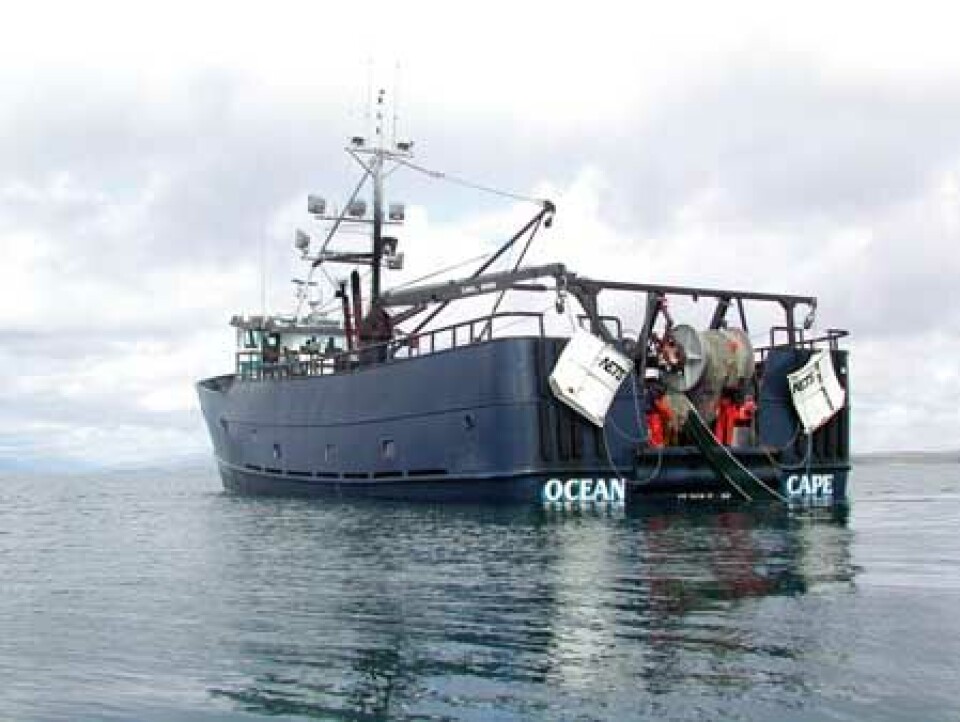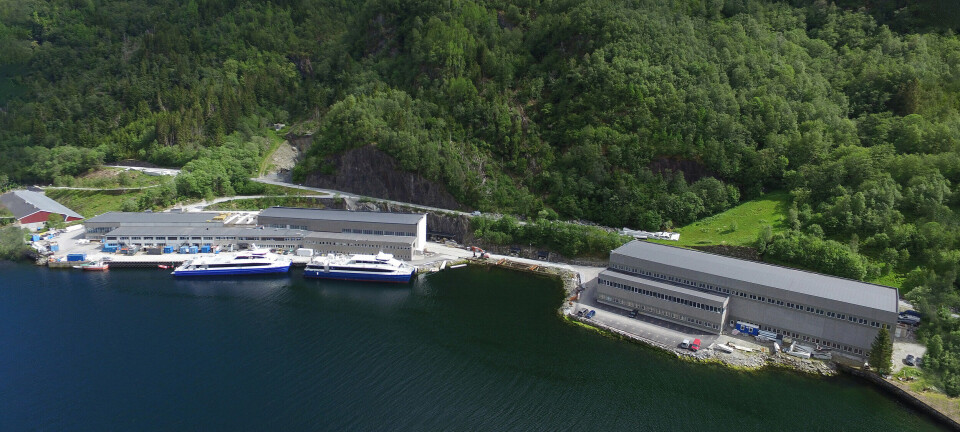
EUs fiskerier
I sommer har Europa Kommisjonen kommet med et par rapporter, den ene som går på reduksjon i fangstkvotene med opp til 25% neste år, kom faktisk ut samtidig som mange europeiske fiskere streiket på grunn av høye drivstoffpriser. Det gjaldt fiskere i Spania, Italia, Frankrike, Belgia og Portugal som streiket i protest mot at bunkers prisene hadde steget med 240 prosent siden 2004.I Spania hevdet Spanish Fishing Confederation at 40.000 jobber er tapt de siste par årene, men landet har likevel EUs største fiskeflåte. Frankrike ønsker at EU Kommisjonen skal gi Euro 350 millioner i hjelp til fiskerne.Ett av forslagene i rapporten nedenfor er overgang til kilowatt dager fra antall dager på sjøen. Dagens system har vært altfor lett til å omgå, hevder noen. Skottland bruker allerede kw/d systemet. Det betyr mindre aktiv tid for de største fartøyene.Men en representant for Scottish Fishermen’s Federation uttalte: “The policy has been all about survival of fish stocks. It now needs to be about the survival of the industry.”Vi siterer fra rapportene:
Denne artikkelen er tre år eller eldre.
Policy statement proposes major changes in fisheries management regimes for 2009.
The European Commission published its annual policy statement on fishing opportunities for 2009, outlining the approach it intends to take when setting Total Allowable Catches (TACs) and fishing effort limitations for the coming year.
The Communication highlights the lack of concrete progress since the 2002 reform of the Common Fisheries Policy (CFP). In particular, TACs are consistently set too far above scientific advice to allow overfished stocks to recover, and the days-at-sea system of effort limitation is ineffective.
As a result, 88% of EU stocks are overfished, compared with 25% on average globally. Despite substantial efforts, there has been no overall improvement in the status of stocks since 2003. The Commission is therefore proposing greater flexibility in changing TACs from year to year, to enable both more effective recovery measures for overexploited stocks, and greater benefit for fishers when stocks do recover.
The Commission is also proposing to shift to a kilowatt-day system for managing fishing effort, which will be both easier to control and more flexible to implement. Member States and stakeholders are invited to present their views on the approach set out by 30 June.
European Commissioner for Maritime Affairs and Fisheries Joe Borg commented: – The situation of Europe’s fish stocks continues to be alarming. Five years after the last Reform of the Common Fisheries Policy, major obstacles continue to prevent the positive measures introduced, such as long-term planning, precautionary management and fuller consultation with stakeholders, from producing tangible results. We need to take bolder action to restore our seas to full health. Only then will we have a really profitable and sustainable fishing industry. I call on Member States and stakeholders to support the approach which we have set out for 2009, and to offer constructive criticism and advice on how it can best be implemented.
Current state of resources
The Communication begins with an assessment of the current state of EU fisheries resources, which are drastically overfished compared to most other regions of the world. The result is that EU fisheries today make a far smaller contribution to the European economy and food supply than they did in the past. Even more worryingly, the status of some 57% of stocks is unknown to scientists, largely due to inaccurate catch reporting. Better data, and in particular automatic cross-checking of different data sources, will be crucial if the CFP is to function effectively.
A number of urgent changes are needed to address this situation. First, fishing opportunities must be set in line with the level of fishing mortality which will produce the highest yield from the stock in the long-term. Annual variations in TAC were previously limited to 15% in either direction, to provide a minimum level of stability to the industry. It is now apparent that, in the case of stocks which are seriously overfished, this measure is producing results which go against the longer-term interests of the industry.
The Commission therefore proposes a more flexible approach to year-on-year changes in TACs, on the basis of advice from the Commission’s Scientific, Technical and Economic Committee on Fisheries (STECF) and in line with that recently proposed as part of the review of the cod recovery plan. This will allow genuine conservation measures to be taken where they are most needed, while helping the industry benefit from recovery once it has taken root. For stocks with a low level of biomass, it is proposed that TACs be reduced by up to 20% a year, while for stocks which have recovered beyond the level which allows the highest yield to be taken, TACs could be increased by up to 25% a year. When STECF advises a zero catch, TACs should be reduced by at least 25%.
Fishing opportunities and Fleet capacity
The Commission also underlines the fact that existing measures to limit effort have not succeeded in bringing about substantial reductions in fishing pressure. The complex derogations which offset reductions in days-at-sea make it impossible to meet realistic reduction targets. As agreed with the Council in December 2007, the Commission believes that a kilowatt-day system would be more effective. It would allow Member States to determine the appropriate balance between fishing opportunities and fleet capacity, and to take measures to encourage low-discard fishing. Proposals on effort limitation for 2009 will therefore be made on this basis.
The purpose of the annual policy statement is to facilitate an informed debate with stakeholders on the basic principles underlying the Commission’s proposals on fishing opportunities for the following year. The Commission is committed to ensuring that EU fisheries are managed in line with the objectives of the Common Fisheries Policy, namely, to ensure sustainable exploitation of resources. TACs and quotas must also respect the EU’s international commitments and the provisions of long-term management plans. TACs are set annually for the Baltic Sea, the Black Sea, and the North-East Atlantic including the North Sea. TACs for fisheries on deep sea species are fixed every two years. Fisheries in the Mediterranean are not managed through catch limits, except in the case of bluefin tuna.
Commission issues statement on the emergency in the sector
Responding to the grave difficulties currently faced by the European fisheries sector as a result of massively increased fuel costs, Fisheries Commissioner Joe Borg has renewed his call for the restructuring of the sector before it is too late. The difficulties faced by the EU fisheries sector have their roots in a structural mismatch between the size of the fleet and the sustainable level of fishing possibilities. These problems have been seriously compounded by the sharp increase of fuel prices over the past few years. Marine Fuel Prices have gone beyond 0.7€/l in most European harbours, an increase of around 240% since 2004.
– I am very aware of the acute difficulties that the European sector is currently facing, and have seen for myself the effects it is having on fishermen, said the Commissioner. – We must act now to restructure: I remain convinced that there is a future for European fisheries, but only if Member States, the sector and the Commission work together to create a smaller, more fuel-efficient fleet that is better matched to fishing possibilities. The Commission stands ready to work hand in hand with Member States and stakeholders to achieve this. Rapid rescue and restructuring aid is possible if it enhances fishing and fleet sustainability, and it can make a difference, added the Commissioner. – We are monitoring the situation very closely and looking for ways to work with the sector to overcome the serious problems they are now facing to better enable them to undertake the necessary restructuring. False solutions, however, cannot be the way forward. Higher quotas, as some have called for, would be completely counterproductive, serving only to further endanger the stocks that fishermen depend on. Fuel subsidies, besides being illegal, would do absolutely nothing to deal with the underlying problems. On the contrary, they would serve only to perpetuate the problems of the sector and make the crash even greater when it comes. Act now to restructure, declared Joe Borg, – but false solutions are not the way forward.
The Commission has been following these trends very closely, and already in 2006 made an analysis of the difficulties facing the fisheries sector. In March of that year it adopted a Communication on “improving the economic situation in the fishing industry” which laid down measures that could be taken by Member States to help their fishing sectors adapt to the higher fuel prices.
The Communi
cation made it clear that operating aid or fuel subsidies were not an appropriate or permissible response to high fuel prices, given that oil prices were likely to stay at a high level.
However, the Commission has encouraged the Member States to adopt rescue and restructuring plans in order to help the adjustment of the segments of their fishing fleets particularly affected by the increase in oil prices, while addressing at the same time the structural causes of the difficulties – fleet overcapacity and fuel-inefficient equipment and practices.
Rescue aid, which should be limited to the minimum necessary, should be seen as a short-term aid to keep an ailing enterprise financially afloat for the time necessary to work out a restructuring or liquidation plan. Such rescue aid, which may last no more than six months, must take the form of a reimbursable loan or guarantee. However, where the rescue aid is followed by an approved restructuring plan, the rescue aid can be repaid with support received by the firm in the form of restructuring aid.
Further restructuring of fishing enterprises to restore economic viability will often imply investment to adapt fishing vessels. General rules on aid for such investment are set out in the relevant EU guidelines on State aid EU aid from the European Fisheries Fund (EFF) can also be mobilised to that effect, under the same conditions.
National aid for certain types of modernisation and equipment of vessels that is not normally allowed under the above conditions could also be considered if it is aimed at restructuring fishing enterprises as part of rescue and restructuring schemes authorised by the Commission (see point 4.1.2 of the guidelines on State aid to fisheries mentioned above). Upon notification of these schemes by Member States, the Commission will assess them on the basis of the relevant EU guidelines on State aid.
Provided that the rescue and restructuring plans are based on realistic assumptions and address the structural deficiencies of the fleets concerned by restoring a better match between capacity and fishing possibilities, they could in particular include support measures such as:
- Short term rescue aid to be reimbursed when the restructuring measures are implemented,
- a one-off change in fishing gear resulting in a less fuel-intensive fishing method,
- purchase of equipment to improve fuel efficiency,
- one-off replacement of the engine under certain conditions.
The Commission is following the evolving situation very closely so as to be able to respond as necessary. This includes a readiness to work with Member States to review EFF Operational Programmes to allow more targeted spending at this difficult time, and to effect an analysis of the fish supply chain to investigate price inflexibilities.











